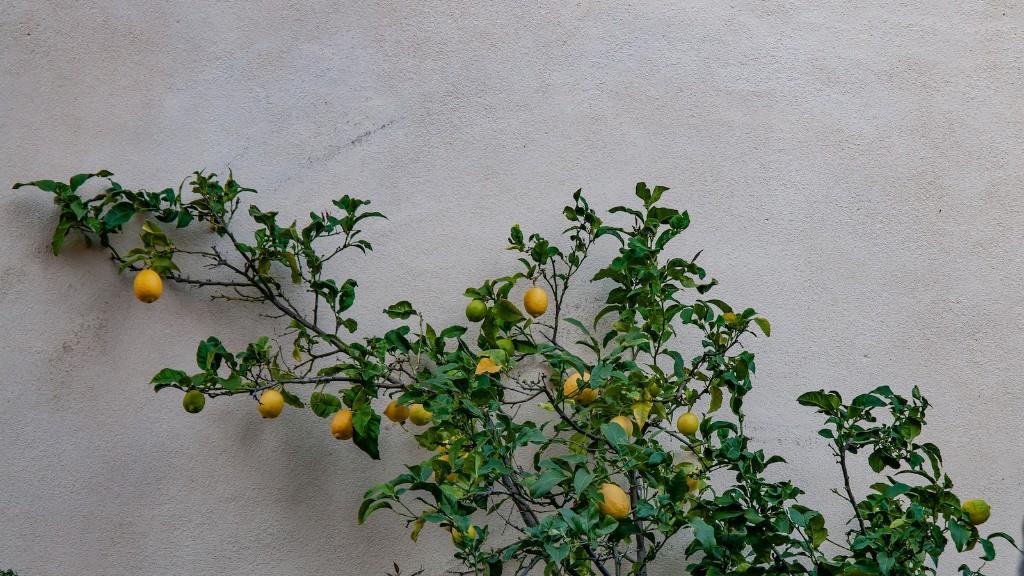Can lemon trees grow in winter? The short answer to this is no because lemon tree varieties require warmer climates to thrive. They need temperatures no lower than 45 degrees Fahrenheint. They grow best in subtropical or tropical regions, or make a great potted houseplant in milder climates. Lemons on the tree, however, can be pickled, juiced, dried, or zested and preserved to enjoy through the winter months.
Winter poses risks to the fitness of citrus trees. They cannot endure cold temperatures below 32 degrees Fahrenheit, because they succumb to citrus-winter freeze. The cold may damage the tree’s tissue or entirely kill it, depending on the severity and duration of the cold temperatures. Planting a lemon tree in a climate where winter freezes occur is not recommended.
Lemon trees don’t tolerate drought or salty soils, either. Soils with pH levels of 5.5 and above should suffice as long as the soil is drained properly and irrigated well. Additionally, lemon tree blossoms form on the new growth of the season, so young tender limbs are vulnerable to cold weather, which can cause frost damage.
It’s important to note that you shouldn’t prune your lemon tree in the winter. Pruning at the wrong time of year can leave your lemon tree vulnerable to frost. Pruning should occur in the spring at the end of the seasonal frost or in the summer. Pruning wood during the winter months can expose new growth during freezing temperatures.
If your winter climate prevents you from growing a lemon tree outdoors, you can still enjoy lemons in other traditional forms. You can choose to situate your lemon tree in a pot, and then move it indoors when the temperatures become too cold. Or you can buy a citrus tree specifically meant to thrive in a container. These trees often have a greater tolerance to cold temperatures, enabling them to survive both warmer, subtropical and tropical regions and more temperate climates.
Lemon Tree Shelter
If you live in a climate of temperature extremes, adding an extra layer of protection may enable your lemon tree to make it through the winter unscathed. If the tree is planted in the garden, it can be wrapped in an old blanket or burlap with the trunk protected and exposed to the proper degree of light in order to facilitate growth and ripening of fruits. Trees don’t like soggy and wet soil, so ensure you are adequately draining the soil without oversaturating the plant.
Citrus Winter Freeze
Citrus winter freeze is a phenomenon that occurs when temperatures in subtropical or some tropical climates drop below the minimum temperature of 32 degrees Fahrenheit. If a lemon tree is exposed to such low temperatures for a certain amount of time, it can experience a hard freeze, which can damage the bark and/or kill the tree in more extreme cases. If you live in an area where it’s possible for your lemon trees to get exposed to this type of cold temperatures, it may be best to consider alternate solutions fitted to your climate.
Winter Care
If you live in an area where freezing temperatures are not a regular occurrence, you can still provide winter care to your lemon tree. Ensure that your lemon tree gets sufficient water, fertilizer, and protection from pests. You should also reduce the amount of pruning you do during the winter months as it may expose your tree to the cold. Additionally, you can provide a layer of mulch at the end of winter season to protect the soil and tree from cold temperatures.
Tropical Climate Requirements
Since most citrus trees, including lemons, are native to the subtropical and tropical climates, you will need to provide your tree with the appropriate climate conditions in order for it to thrive. This includes plenty of sunshine, warm days, and adequate amounts of water. Lemon trees need temperatures that no lower than 45 degrees Fahrenheit, but ideally temperatures of sixty to ninety-five degrees Fahrenheit. During the cold winter months, you may need to provide extra protection to your lemon tree with a blanket or burlap to provide added warmth.
Achieving Productivity
The warmer winter months are best for pruning and fertilizing your lemon tree in order to achieve proper fruit productivity. Applying an appropriate fertilizer during this time will promote new growth and the potential of larger fruit yields. Additionally, the lower temperatures also decreases the chances of pests and disease, so it’s a great time to prune and fertilize to prepare your tree for growth and productivity during the growing season.
Managing Expectations
Given the climate sensitivities of lemon trees, it’s important for homeowners to properly manage their expectations when it comes to growing a lemon tree. The reality is that if your climate doesn’t provide the adequate temperature range and ecological conditions, the chances of successfully developing a mature lemon tree are low.
Managing Soil Quality
The quality of the soil is a major factor to consider when growing a lemon tree. Your soil should be well-drained and be slightly acidic, with an ideal pH level of 5.5 or higher. Porous soils with plenty of organic matter are the best suited for proper lemon tree growth, as they are better able to retain the moisture and nutrients trees need.



